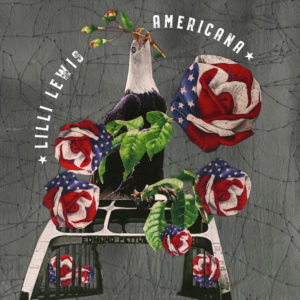 Lilli Lewis asks many big questions on Americana.
Lilli Lewis asks many big questions on Americana.
Is she the best version of herself she can be? / Is there really a difference between you and me? / What if it were you in her place? / Will she let the church choose who she weds? / Is the bigotry that killed her grandfather her story?
She asks many of these hard questions to tell the story of forgotten Americans. People like the BIPOC artists that invented Americana but only get one and half percent of radio play compared to other country artists, or of homeless people on “Copper John” and all forgotten American’s on “My American Heart.”
With the pandemic, Lewis had the opportunity to write slower and more narrative-driven music. Now on the other side of quarantine and hurricane-related recording hiccups, she emerges with an album that is as powerful thematically as it is sonically.
For the most part, Americana takes a serious tone backed by vivid lyrics. Like the aforementioned “Copper John,” a twangy, low-down track with a classic western shuffle to it. On it, she exposes the homeless people lost at the bottom with lyrics capturing their potential (You’re a sea creature in stale waters/ With the power in your blood/ To make the angels sing about heaven/ Here on earth as above)
But Lewis lets loose with her familiar danceable funk on “Wrecking Ball.” It fuses a gospel organ with Southern rock guitars in an angry parade to tear it all down and start over again.
And on “One Shoe,” Lewis sings about making the best in life despite your disadvantages while also featuring a groovy bass solo and Lewis scatting towards the end.
“Wednesday’s Child” chillingly accounts the generational trauma racism has had on Lewis and her family. Somber keys lead the track and minimalist guitar plinks joined by tapping percussion create an eerie and melancholy soundscape. But at the moment the drums pull in, Lewis reveals her grandfather’s suicide and the bigotry that led him to do it. It’s a reckoning with the land she calls home and the identity she poses as a child full of woe. A grand climax places the grave of her grandfather in a cotton field before giving way to Lewis’ opera-trained and emotionally raw vocals.
There’s hurt and solace to be found on this album. On the closing track, “My American Heart,” Lewis makes sure people have this difficult conversation and answer the big questions.




